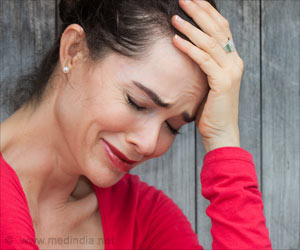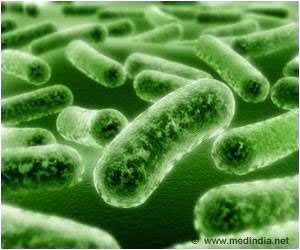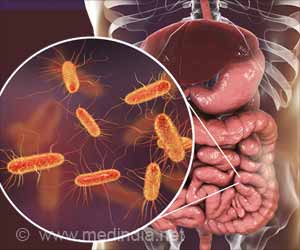- Depression is one of the most common mental disorders experienced worldwide with an average lifetime prevalence of 11–15% but is poorly understood
- Recent study shows that 13 bacterial types may be associated with likelihood to develop depressive symptoms //
- Prescribing prebiotics and probiotics could help, although further research is required
Gut Bacteria and Depression
In a recent investigation, scientists discovered that 13 bacterial types were associated with the likelihood that individuals would have depressive symptoms. In some cases, the gut bacteria were depleted in people with depression, while in others they were present at relatively high levels. Researchers emphasized that the results do not establish that any gut bacteria cause or prevent depression, though. Therefore, it would be premature to suggest probiotics as a depression treatment.Gut bacteria seem to change in their diversity and abundance when any chronic disease is present which is why the findings might reflect ‘general disease effect,’ rather than gut bacteria patterns that are specific to depression.
The gut microbiome refers to the trillions of bacteria and other microorganisms that live in the digestive system. Those microbes are believed to do much more than aid in digestion. Studies show they are involved in everything from immune system defenses to producing vitamins, anti-inflammatory compounds and even chemicals that influence the brain. Some research has linked certain gut bacteria to higher or lower odds of depression. The new findings confirm that those microbes are tied to depression and identify some new ones. Beyond that, the study included people of diverse ethnic backgrounds. And it appeared the microbiome-depression links were consistent across those groups (1✔ ✔Trusted Source
Cryan, J.F. & Dinan, T.G. Mind-altering microorganisms: the impact of the gut microbiota on brain and behaviour. Nat. Rev. Neurosci. 13, 701-712
Go to source).
The findings do not prove cause and effect. Depression can cause people to eat poorly and diet is a primary factor in the makeup of a person's gut bacteria. So, that could be one explanation for the results.
How Gut Bacteria May Cause Depression
At the same time, the notion that gut bacteria could affect depression risk is not far-fetched. According to researchers, some bacteria in the groups they identified help synthesize certain chemicals that affect the brain - such as butyrate, glutamate and serotonin. Evidence is accumulating that gut microbiota may influence brain activity and behavior via neural and humoral pathways and may have translational applications in the treatment of neuropsychiatric disorders like depression (2✔ ✔Trusted SourceGut microbiome-wide association study of depressive symptoms
Go to source).
And whether gut bacteria actually help cause depression or not, it is still important to know whether they correlate with the disorder, according to the researchers. That could help in diagnosis, they say.
What they are looking for is to identify the bacteria that are associated with major depression. This will help us in identifying a biomarker for depression that can be used as an objective measurement in identifying cases - which is lacking at the moment for depression.
One study involved nearly 2,600 Dutch adults who were screened for depression and gave stool samples to be analyzed for their bacterial makeup. The other included just over 3,000 Dutch adults living in the same urban area; many were of Ghanaian, Moroccan, Surinamese or Turkish descent.
Bacteria Potentially Linked to Depression
Conclusively, the researchers found 13 bacterial groups that correlated with participants’ depression scores. In most cases, the gut microbes were decreased in people with depression. But some bacterial groups, like Sellimonas and Eggerthella, were present in greater abundance when people were depressed.Further research is important to prove that if any bacterial imbalances actually help cause depression, that could form the basis for new treatments, such as probiotics or prebiotics.
References:
- Cryan, J.F. & Dinan, T.G. Mind-altering microorganisms: the impact of the gut microbiota on brain and behaviour. Nat. Rev. Neurosci. 13, 701-712 - (https://www.researchgate.net/publication/230832653)
- Gut microbiome-wide association study of depressive symptoms - (https://www.nature.com/articles/s41467-022-34502-3)
Source-Medindia
















